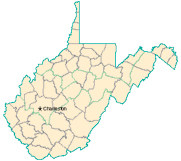While rural West Virginia waits for broadband service, more than $1 million in federal tax dollars devoted to rural Internet expansion is instead paying for consultants, most who live out-of-state.
The Charleston Gazette-Mail reports state officials paid out huge sums to a network of consultants, many employed by Verizon Communications, ostensibly to assist with its $126.3 million federal grant to improve broadband to “anchor institutions.” But critics wonder whether the money, which will ultimately not deliver a single new broadband connection to any individual home or business, is redundant and an example of wasteful government spending.
Among the recipients:
- Perry Rios, a Verizon employee who resides in Denver, was paid $512,000 in 2011 and is on track to earn another $329,000 this year helping the state figure out how to spend the money before the clock runs out. Rios has traveled to West Virginia 47 times since the summer of 2010. Total tab to taxpayers: $731,770 so far for just over two years of subcontracting work;
- Verizon network engineer Lloyd Draper, who resides in Virginia, earned $252,075 in consulting work. Clarence Turning, who lives in Connecticut, has received $143,490. Two other Verizon workers contracted as project managers both earned nearly $100,000 each.
- Verizon demands $250/hour for consulting work in the state it abandoned in 2010 when it sold off its landline network to Frontier Communications.
Questions are being raised about the necessity of the Verizon contractors because Frontier Communications, tasked with building the institutional fiber network, already has project managers and other workers with nearly identical job responsibilities. State officials seem to suggest Frontier’s employees are not up to the task.
“This work goes far beyond our current staffing resources,” Gale Given, chief technology officer for West Virginia state government told the Gazette. “These professionals are necessary to provide engineering, project management and other functions, and to coordinate the various parties that are involved in the grant.”
In May, Stop the Cap! reported that the stimulus-funded broadband expansion project was already mired in controversy over earlier spending decisions that included high-powered, expensive routers for rural schools and libraries that sat unused for two years and fiber broadband built with taxpayer funds that rural institutions could not afford to maintain once taxpayer funding ran out.
 The U.S. Department of Commerce’s Inspector General and West Virginia Legislative Auditor are reviewing the state’s use of the stimulus funds.
The U.S. Department of Commerce’s Inspector General and West Virginia Legislative Auditor are reviewing the state’s use of the stimulus funds.
According to the newspaper, West Virginia is using its $126.3 million federal stimulus grant to purchase Internet routers and bring fiber-optic broadband to more than 1,000 “community anchor institutions” — schools, libraries, 911 centers, state agencies, police barracks, health centers, and other public facilities. The money, which was awarded in 2010, also will pay to upgrade an existing wireless Internet tower network. The network will not provide service to individual homes or businesses.
State officials also told the newspaper the $1.3 million spent on the Verizon consultants wouldn’t hamper the broadband expansion project. The state expects to finish the $126.3 project with $9 million in leftover funds. The state has until Jan. 31 to spend the stimulus money, or risk having to return unspent funds to the federal government.


 Subscribe
Subscribe
